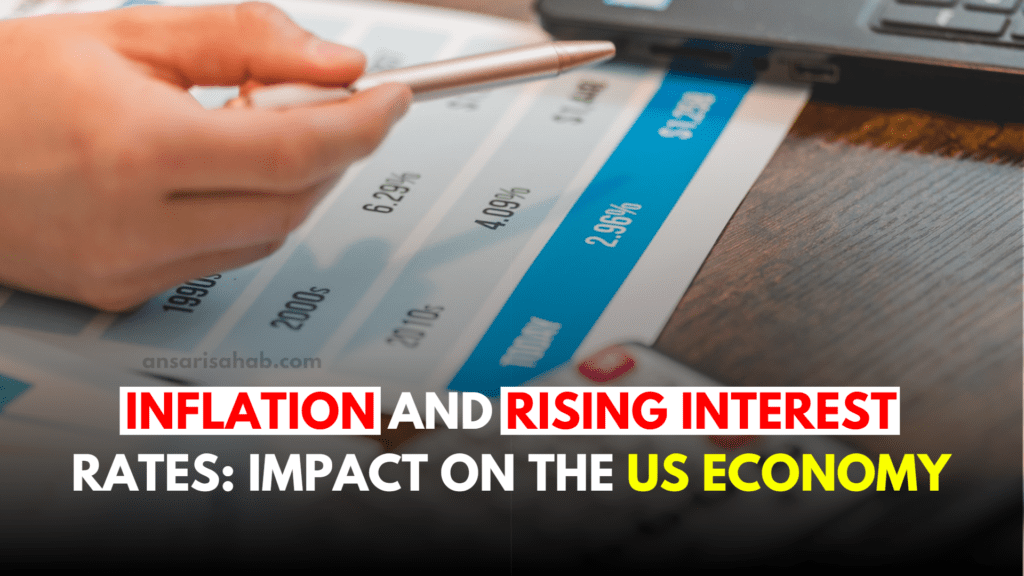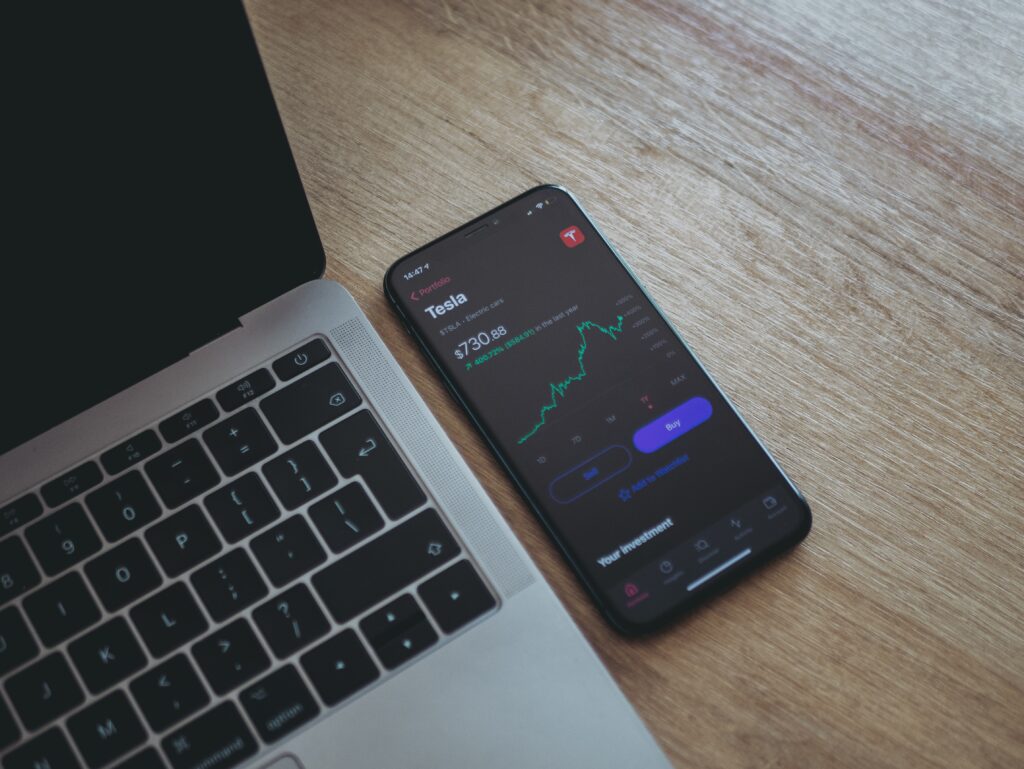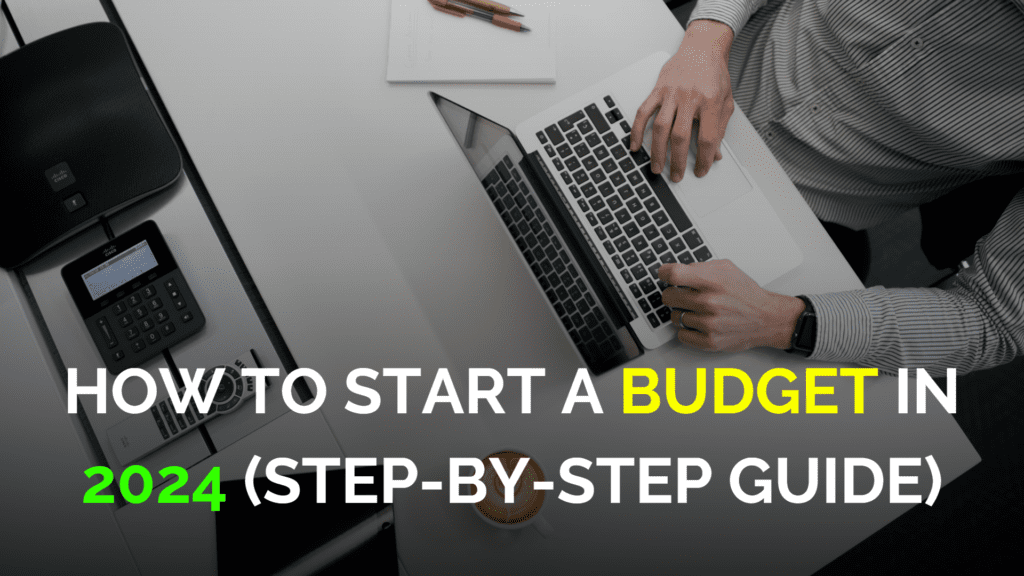Inflation and rising interest rates are two of the most important economic indicators that can have a significant impact on the US economy and the finances of individuals and businesses. Inflation is the rate at which prices for goods and services are rising over time. Rising interest rates are the result of the Federal Reserve raising the federal funds rate, which is the interest rate that banks charge each other for overnight loans.
When inflation is high, it can make it difficult for people to afford basic necessities, such as food, housing, and transportation. It can also lead to a decrease in consumer spending, which can slow down economic growth. Rising interest rates can also make it more expensive for businesses to borrow money, which can also slow down economic growth.
Impact on the US Economy
Inflation and rising interest rates are currently having a significant impact on the US economy. Inflation is at a 40-year high, and interest rates are rising in an effort to combat it. This is leading to higher prices for goods and services, which is making it difficult for people to afford basic necessities. It is also making it more expensive for businesses to borrow money, which is slowing down economic growth.
Here are some specific examples of how inflation and rising interest rates are impacting the US economy:
- Consumers are spending less. As inflation rises, consumers are spending less money on goods and services. This is because they have less disposable income after paying for basic necessities.
- Businesses are investing less. Rising interest rates make it more expensive for businesses to borrow money, which is discouraging them from investing in new projects and hiring new employees.
- The housing market is slowing down. Rising interest rates make it more expensive to buy a home, which is cooling the housing market.
- The stock market is volatile. Rising interest rates and inflation are making investors nervous, which is leading to volatility in the stock market.
Impact on Individuals
Inflation and rising interest rates can also have a significant impact on individuals. Here are some specific examples:
- Lower purchasing power. Inflation reduces the purchasing power of money, which means that people can buy less with the same amount of money. This can make it difficult for people to afford basic necessities.
- Higher debt payments. Rising interest rates make it more expensive to repay debt, such as credit card debt and student loans. This can make it difficult for people to make ends meet.
- Lower savings returns. Rising interest rates can lead to lower returns on savings accounts and other fixed-income investments. This can make it difficult for people to save for retirement or other financial goals.
Impact on Businesses
Inflation and rising interest rates can also have a negative impact on businesses. Here are some specific examples:
- Higher costs of production. Inflation can make it more expensive for businesses to produce goods and services. This is because the cost of raw materials, labor, and other inputs can increase.
- Lower demand. When inflation is high, consumers may spend less money on goods and services. This can lead to lower demand for businesses’ products and services.
- Higher borrowing costs. Rising interest rates can make it more expensive for businesses to borrow money. This can discourage investment and growth.
What Individuals Can Do to Protect Their Finances
There are a number of steps that individuals can take to protect their finances from inflation and rising interest rates. Here are a few tips:
- Create a budget and stick to it. This will help you to track your spending and make sure that you are not overspending.
- Pay off high-interest debt. This will free up more of your money to cover other expenses.
- Invest in assets that tend to appreciate in value during inflation, such as stocks and real estate. You should consult with a financial advisor to develop an investment strategy that is appropriate for your individual needs and risk tolerance.
- Save money in a high-yield savings account or certificate of deposit (CD). This will help you to earn interest on your savings and grow your wealth over time.
Here are some additional tips for protecting your finances from inflation and rising interest rates:
- Shop around for the best prices on goods and services.
- Use coupons and promo codes to save money.
- Cook at home more often instead of eating out.
- Reduce your energy consumption by turning off lights and appliances when you are not using them.
- Take advantage of free or low-cost activities, such as going to the park or library.
Read More: Student Loan Forgiveness for Recent Graduates: Your Step-by-Step Guide
What Businesses Can Do to Protect Themselves
There are a number of steps that businesses can take to protect themselves from inflation and rising interest rates. Here are a few tips:
Increase prices
Businesses can increase prices to offset the higher costs of production and to maintain profitability. However, it is important to do this carefully, as raising prices too much can lead to a decrease in demand.
Reduce costs
Businesses can also try to reduce costs in other areas, such as labor, marketing, and overhead. However, it is important to be careful not to cut costs in a way that sacrifices quality or customer service.
Invest in efficiency
Businesses can also invest in new technologies and equipment to improve efficiency and reduce costs. For example, a business could invest in new software to automate tasks or in new equipment to reduce energy consumption.
Diversify products and services
Businesses can also diversify their products and services to reduce their reliance on any one product or service. This can help to mitigate the impact of inflation and rising interest rates.
Seek government assistance
There may be government programs available to help businesses during times of economic hardship. Businesses should research these programs to see if they are eligible for any assistance.
Conclusion
Inflation and rising interest rates can have a significant impact on the US economy and the finances of individuals and businesses. It is important to be aware of the risks and to take steps to protect your finances. The government can also play a role in helping people and businesses to cope with the challenges of inflation and rising interest rates.
Additional Tips for Individuals
Here are some additional tips for individuals who are struggling to cope with inflation and rising interest rates:
- Seek help from a financial advisor. A financial advisor can help you to develop a plan to manage your finances and to protect your savings.
- Talk to your creditors. If you are having difficulty making debt payments, talk to your creditors about options such as forbearance or loan modification.
- Take advantage of government assistance programs. There may be government programs available to help low-income individuals with food, housing, and other expenses.
- Make lifestyle changes. There are some lifestyle changes that you can make to reduce your spending, such as cooking more meals at home, driving less, and shopping around for the best prices on goods and services.
Additional Tips for Businesses to cope with inflation and rising interest rates
Here are some additional tips for businesses who are struggling to cope with inflation and rising interest rates:
- Communicate with your customers. Be transparent with your customers about the impact of inflation and rising interest rates on your business. Let them know why you may need to raise prices or make other changes.
- Focus on customer service. Even during tough economic times, it is important to focus on providing excellent customer service. This will help you to retain your customers and to attract new ones.
- Invest in your employees. Employees are a business’s most valuable asset. Invest in your employees by providing them with training and development opportunities. This will help them to be more productive and to better serve your customers.
By following these tips, individuals and businesses can help to protect themselves from the negative impacts of inflation and rising interest rates.









